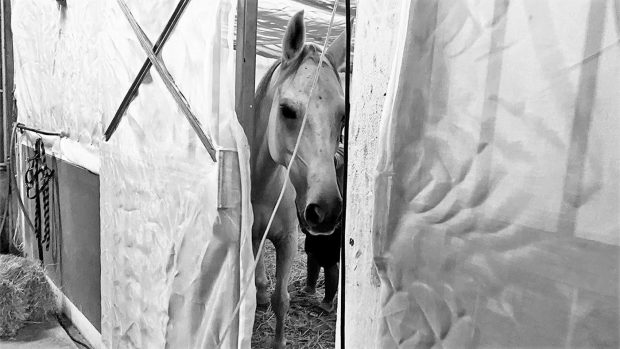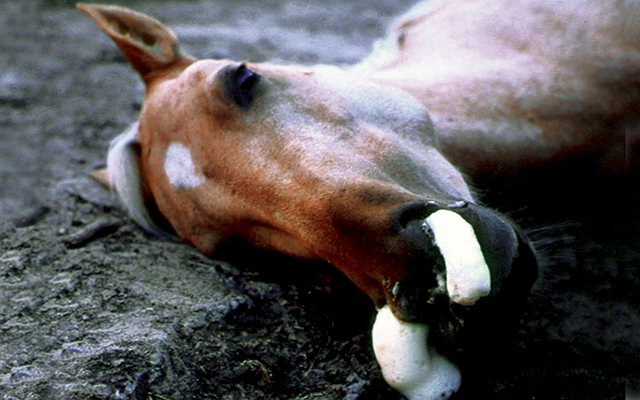African horse sickness is a viral disease transmitted by midges (Culicoides spp). As a result of global warming, for the first time in the UK we are seeing the family type of these insects that will act as vectors for spread, if or when the disease arrives here.
What are the symptoms of African horse sickness?
Although it is not infectious – an infected insect is always the intermediate host – African horse sickness is the most feared of all equine diseases.
There are two forms; the pulmonary form is the most lethal and recovery is rare. A very high temperature quickly leads to severe respiratory distress, a frothy discharge from the nose and then death.
The cardiac form results in a more persistent high temperature that gradually leads to swelling of the head, initially above the eyes, but then spreads to the rest of the head and neck. The mortality rate is about 50%, but any haemorrhaging from the eyes and mouth is a poor indicator for survival.
Can African horse sickness be prevented?
Minimising contact with biting insects will play a significant part in control. However, slaughter may be a major part of the African horse sickness disease control programme, as eradication rather than vaccination will be the principal aim.
Insect avoidance measures are the key. Housing horses, especially from dusk to dawn when the insects are most active, together with the use of DEET-based insect repellents, can make a difference.
Action should also be taken to remove the insect breeding sites – for example stagnant water troughs – either by draining them or by the application of larvicides or a thin film of oil that prevents the larvae from breathing.
Can we prepare for the arrival of African horse sickness in the UK?
While the chances of African horse sickness reaching the UK immediately are slim, the risk continues to escalate and it is crucial that we stay vigilant and are well prepared.
The equine industry and veterinary surgeons are now being regularly briefed about the disease and significant steps are being taken to ensure we are prepared when the inevitable occurs, as the consequences for the equine industry of a major outbreak could be devastating.
For the full article on tropical diseases, covering both African horse sickness and West Nile virus, see the current issue of Horse & Hound (16 July, ’09)




